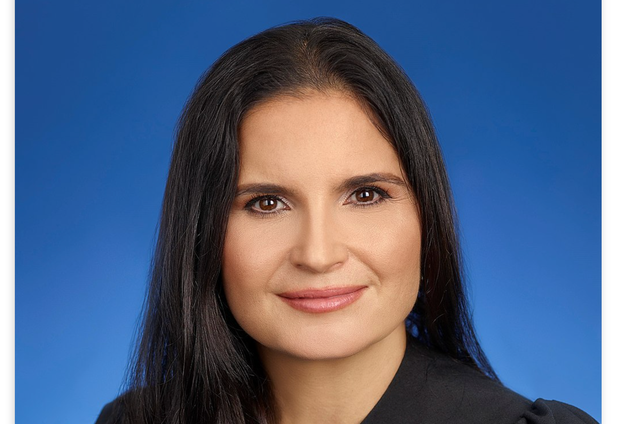Washington — Special counsel Jack Smith and attorneys for former President Donald Trump will be back in a Florida federal courtroom Friday to kick off three days of hearings to grapple with, among other issues, whether Smith should even be allowed to prosecute Trump.
The former president challenged the appointment and funding of the special counsel and argued in filings in February that Smith “lacks the authority to prosecute this action.” Trump’s legal team employed a legal theory that has been rejected by courts in attempts to oppose other independent Justice Department probes. Trump’s attorneys say Attorney General Merrick Garland lacked the constitutional authority to appoint Smith, arguing that a special counsel must be appointed by the president and approved by the Senate.
District Court Judge Aileen Cannon has taken the unusual step of inviting outside groups to argue each side of the issue before the court. Former federal prosecutors and elected officials filed a brief in support of Smith’s appointment and urged her to rule swiftly against Trump to avoid what they said would be unnecessary hearings on the matter. The group includes former Justice Department officials who served under Republican presidential administrations and a former Republican member of Congress.
On the other side, former U.S. Attorneys General Edwin Meese and Michael Mukasey, who each served as attorney general in Republican administrations, wrote to bolster Trump’s challenge. They said that “nearly all” special prosecutors in recent history were previously appointed by the sitting president and approved by the Senate as U.S. attorneys. Smith was “neither,” they wrote, a contention the group will make in court on Friday.
Trump’s team also challenged the funds the Justice Department uses to pay for the special counsel probes – an indefinite bucket of federal funds that special counsels are allocated by Congress to do their work.
In legal filings earlier this year, the special counsel defended his appointment and wrote Congress authorizes the attorney general to commission prosecutors to lead independent investigations for the Justice Department. Smith’s appointment was sanctioned by special counsel regulations that have governed the work of other investigations, including that of former special counsels Robert Mueller and John Durham, who were both appointed during the Trump administration, prosecutors wrote.
“Attorneys General have long used these powers to appoint special attorneys with responsibilities like the Special Counsel’s, with consistent support from Congress, the Executive Branch, and the courts,” Smith wrote.
Trump’s argument resembles a failed strategy President Biden’s son, Hunter Biden, has tried in his bid to dismiss two cases filed against him by another special counsel, David Weiss, who was appointed Delaware U.S. attorney by Trump.
Prosecutors also argued Trump’s claim that the special counsel is not properly funded “lacks merit” based on legal and historical precedent.
Cannon has not yet set a date for the case against Trump to go to trial and is still considering numerous legal challenges posed earlier this year. The former president is accused of mishandling national defense information — including some of the federal government’s most classified material — after he left office. He and two aides are also accused of engaging in an alleged scheme to obstruct the classified records probe.
All three have pleaded not guilty and denied wrongdoing. None of the defendants are required to attend the upcoming hearings, which will also deal with a proposed gag order over Trump’s speech.
Last month, the special counsel launched a bid to limit Trump’s public comments about law enforcement on the case. Smith asked Cannon to change the former president’s conditions of pretrial release to prohibit him from making comments similar to those he’s made over the past few months about the case. Smith alleged Trump “endangered law enforcement officers involved in the investigation and prosecution of this case and threatened the integrity of these proceedings.”
Federal prosecutors moved to limit Trump’s public comments after he made false claims that FBI agents were “authorized to shoot” him as they executed a court-authorized search warrant at his Mar-a-Lago residence in August 2022. Trump was not at Mar-a-Lago during the search, in which agents recovered over 100 documents with classified markings as part of the federal probe into the former president’s handling of sensitive government records.
Smith alleged that Trump had “grossly distorted these standard practices by mischaracterizing them as a plan to kill him, his family, and U.S. Secret Service agents.” Without offering specific cases, prosecutors wrote that Trump’s language “pose[s] a significant, imminent, and foreseeable danger to the law enforcement agents” and should be curtailed as a result.
Trump’s legal team pushed back and accused prosecutors of trying to limit the former president’s speech on the campaign trail.
Cannon is expected to consider their arguments in court Monday after hearing from each side on the matter of Smith’s special counsel appointment.
On Tuesday, the judge will conduct a sealed hearing over attorney-client privilege matters and in open court will hear arguments over evidentiary matters.
Smith also charged the former president with four counts that amount to an alleged plot to illegally oppose the result of the 2020 presidential election. He has pleaded not guilty to those charges, and the case has been on hold while the Supreme Court considers his claims of presidential immunity from prosecution.
With the Supreme Court matter still pending and Cannon’s lengthy pretrial schedule, the prospects that either of Smith’s cases against Trump will go to trial before the presidential election are diminished.

